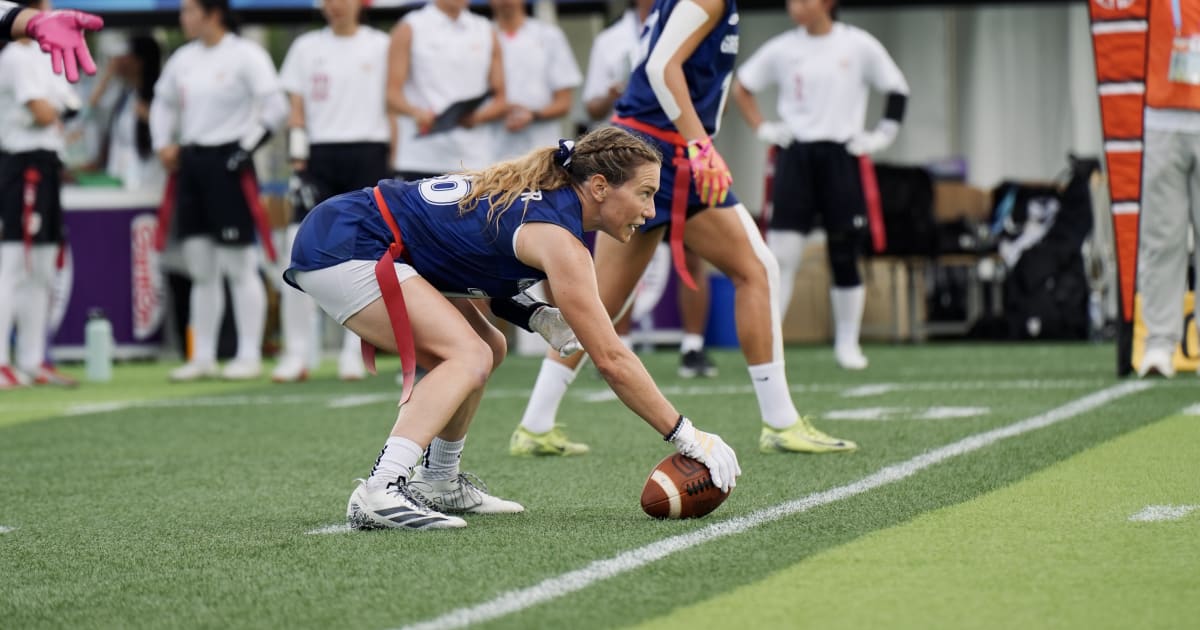“I think I would regret it if I did not give it a try”
The undeniable rising flag tide and her long-time investment in all elements of the game make Schecter’s feelings around the Olympics and her prospects of competing there even more complex.
Acutely aware that she would be 38 come the opening day of competition in LA, an inner conflict emerges as the conversation turns to the Games.
“This kind of conversation around the Olympics in three years is something that I keep having with myself,” Schecter admits.
“I know there’s lots of athletes who are older and could definitely who are older and could play. And I would love to be that person when I’m like, oh, so close. How do you not?
“It’s just that in an ideal world, I get beat out of my position by someone younger, faster, better, because that shows that the sport has this really wonderful pathway that we’ve been building. So, that would be, in its own weird sense, the ultimate goal.”
Great Britain, fifth in the IFAF women’s world rankings as the second European team behind Austria, is certainly establishing itself as a force in the discipline, with the squad competing at The World Games 2025 consciously blending youth and experience as it attempts to keep up with global pacesetters, the United States and Mexico.
Having been a part of that developmental piece for so long, the Olympic qualification would be an ideal health check on its progress. And with just six teams set to compete at the Games in 2028, decisions around personnel are crucial: “You better pick the right team,” says Schecter plainly.
Her view is admirably selfless. And one predicated on the fact that, as a reputed coach and commentator, she will surely be in California in some capacity, come what may.
Still, the athlete in her is not backing down on giving it a go.
If she can drive standards in the sport that she continues to love playing, then why not stick around?
“I think there’s only one way to do it. The Olympics is not any joke. And we’ve seen that just being here at the World Games, you have to be fully dedicated to it. And I truly think that I am,” Schecter says.
“I can definitely do a better job in terms of being more of a professional athlete. Sometimes work does get in the way of that. And that’s that interesting dichotomy that comes in when you’re still full-time, but you’re trying to be a full-time athlete. But health-wise I do all the things I possibly can to be able to put myself in that position.
“I think I would regret it if I did not give it a try.”
